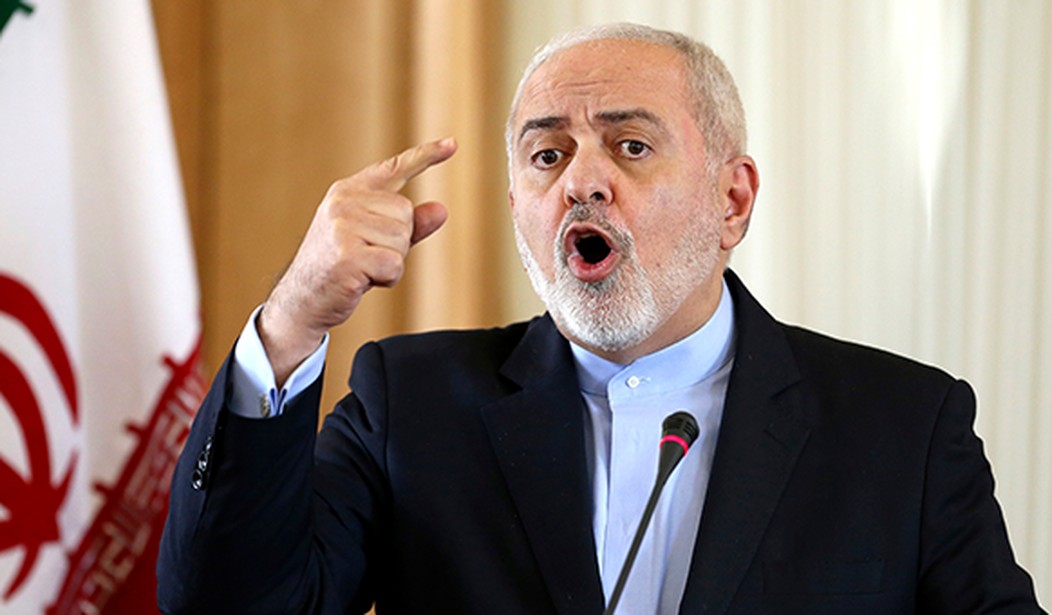Debate within the United States over the correct policy for dealing with the Islamic Republic of Iran has long been centered on the idea of a dichotomy between engagement and war. Defenders of the status quo continue to suggest that in order to avoid armed conflict, we must turn a blind eye to the theocratic regime’s domestic repression and its propensity for mischief-making beyond Iran’s borders. Starting with that assumption, anyone who recommends a decisive alternative policy is painted as a warmonger.
But this is a false narrative, which serves the interests of the Iranian regime and has roots in its own propaganda networks. Tehran’s advocates and apologists in Washington have amplified and repeated that narrative as part of an effort to dissuade the current administration from following through with the policies it has already undertaken.
The fact is that in the past 40 years, there has never been a serious risk of war with Iran. Unfortunately, this fact has been reinforced by widespread commitment to a policy of appeasement. Previous American presidents, both Republican and Democrats, chose to forestall conflict by working only with the ruling regime while ignoring an essential factor in Iranian affairs: the Iranian people and the organized opposition to the clerical regime.
This approach has, at times, involved both the carrot and the stick, but it has only served to embolden the regime and prolong its rule, to the detriment of the Iranian people. Washington’s persistent refusal to endorse or support that opposition is based in large part on the futile hope that given sufficient incentives, the existing regime will moderate or change its behavior.
Of course, nothing of the sort has happened throughout four decades. Instead, the regime continued its quest for nuclear weapons, advanced its ballistic missile program and fomented a growing number of proxy conflicts in the Middle East region, not to mention the brutal suppression of its own citizens.
Recommended
Even though no real change has come to that regime during that time, there have been very recent and very significant changes to the circumstances that might determine the country’s future. As a result, it is now time for the international community to consider a new and effective approach to the regime. The Trump administration has taken some steps in this direction by withdrawing from the fatally flawed Iran nuclear deal, re-imposing sanctions the Obama administration had removed, rescinding waivers for importers of Iranian oil, designating the Islamic Revolutionary Guard Corps as a Foreign Terrorist Organization, and sanctioning Supreme Leader Ali Khamenei and his office.
But more needs to be done, and Iranian expatriates have tried to point the way toward a more comprehensive policy. Thousands of them were joined by political supporters last month at a march in Washington, D.C., which caught the attention of the White House and particularly Vice President Mike Pence. It demonstrated that there is a vibrant, active, cohesive, and well-organized opposition to the regime throughout the Iranian diaspora, with its roots inside Iran.
The Iranians declared their support for an uprising that marked the beginning of 2018 and spawned a wide variety of anti-government demonstrations that continue to this day. The Washington rally also expressed support for the opposition leader Maryam Rajavi’s ten-point plan for the future of Iran, which calls for the establishment of a democratic, secular and non-nuclear state in place of the Islamic Republic.
The Trump administration should take note of this message in expanding upon its defined strategy of “maximum pressure.” In an interview with CBS’s "Face the Nation," Pence affirmed that the United States stands with “thousands of [Iranians] gathered outside of the White House and tens of thousands who have taken to the streets last year in communities in Iran.” This is a good step in the direction of returning the Iranian people to their appropriate place in discussions of Iran policy. But the U.S. should go further by explicitly recognizing the legitimacy of those people’s opposition and providing political support to its standard-bearer, the National Council of Resistance of Iran (NCRI).
As if that show of strength was not enough, this past weekend, no less than 15,000 NCRI adherents rallied and marched in the German capital, Berlin. Ironically, Patrick Kennedy, whose uncle, President John F. Kennedy, had spoken in West Berlin 56 years ago, was the keynote speaker and the historic Brandenburg Gate.
“We are at a historic point in history when it comes to the freedom of the people of Iran. This is not just a problem for Iranians to solve, it’s a problem for anyone in the world who cherishes freedom and who hates the tyrannical regime of the mullahs in Iran,” he said.
The NCRI and its main constituent group, the Mujahedin-e Khalq (MEK), have demonstrated their capacity for effective resistance over more than three decades, culminating in a leading role in the planning and execution of last year’s nationwide uprising. This only accelerated the expression of paranoia among Iranian officials, as it concerns the NCRI’s domestic popularity and organizational strength. This goes to show that, contrary to the assumptions underlying Western narratives about a choice between engagement and war, there is a viable alternative to the existing regime, and thus a viable alternative to either tolerating that regime or throwing it out by force of a foreign military intervention.
Ken Blackwell is a senior fellow at the Family Research Council. He was United States Ambassador to the United Nations Human Rights Commission.

























Join the conversation as a VIP Member